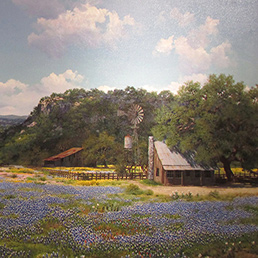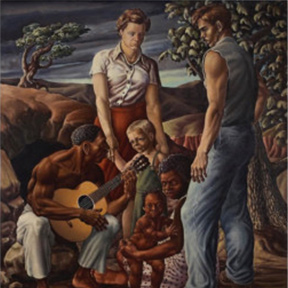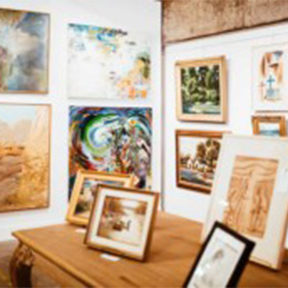- (214) 720-4044
- info@daviddike.com
- Mon - Fri: 10 am - 5 pm
Boatright, Elizabeth
Elizabeth Boatright
(Am. 1897-1989)
Known as the “etcher of Indians,” Elizabeth Boatright also spent many years doing watercolor and oil landscapes of Texas and the Southwest states of Arizona and New Mexico. She was born and raised in Houston and attended the Southern Seminary in Buena Vista, Virginia (1915-17); the Art Institute of Chicago (1920-24); and the Art Students League in New York (1924-25) where she came under the influence of Joseph Pennell, master etcher. From 1925 until his death a year later, she was his assistant. Boatright developed a keen interest in Indian culture when she first went West in 1921. In 1927, as a student of Joseph Pennell she began aquatints and drypoint etchings of Indians she observed in Arizona and New Mexico. Then she returned to Texas and was a teacher and later head of the Art Department at Sul Ross State Teachers’ College, Alpine, until 1932. She continued her visits to the Southwest, and in addition to etchings of Indian subjects, she painted numerous watercolor landscapes of the Big Bend Country of Texas. In 1931, she married folklorist Dr. Mody Boatright, and they lived in Austin where he was a Professor of English at the University, and she continued her painting career including the teaching of classes. In 1971, a year after the death of her husband, she settled in Corpus Christi until her death in 1989. In that area, she focused on marine painting. From the time of her marriage, she used her husband’s name on her work because painting at a time when it was difficult for women artists to get recognition, she signed her paintings with her surname of “Keefer,”both without first initials as well as with the full name Elizabeth Keefer Boatright. She traveled widely in the Southwest, where she visited and did etchings of the Indians. Thirty of her etchings were exhibited in a one-woman show in the National Museum in Washington D.C. in the early 1930s. The artist died in Corpus Christi and was buried in Kerrville.





